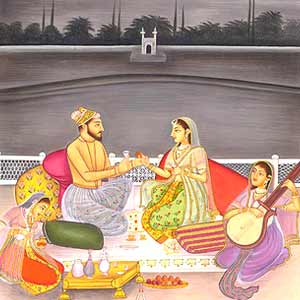
Rosa Nocturna
por
Xavier Villaurrutia
Yo también hablo de la rosa.
Pero mi rosa no es la rosa fría
ni la de piel de niño,
ni la rosa que gira
tan lentamente que su movimiento
es una misteriosa forma de la quietud.
No es la rosa sedienta,
ni la sangrante llaga,
ni la rosa coronada de espinas,
ni la rosa de la resurrección.
No es la rosa de pétalos desnudos,
ni la rosa encerada,
ni la llama de seda,
ni tampoco la rosa llamarada.
No es la rosa veleta,
ni la ulcera secreta,
ni la rosa puntual que da la hora,
ni la brujula rosa marinera.
No, no es la rosa rosa
sino la rosa increada,
la sumergida rosa,
la nocturna,
la rosa inmaterial,
la rosa hueca.
Es la rosa del tacto en las tinieblas,
es la rosa que avanza enardecida,
la rosa de rosadas uñas,
la rosa yema de los dedos ávidos,
la rosa digital
la rosa ciega.
Es la rosa moldura del oído,
la rosa oreja,
la espiral del ruido,
la rosa concha siempre abandonada
en la más alta espuma de la almohada.
Es la rosa encarnada de la boca,
la rosa que habla despierta
como si estuviera dormida.
Es la rosa entreabierta
de la que mana sombra,
la rosa entraña
que se pliega y expande
evocada, invocada, abocada,
es la rosa labial,
la rosa herida.
Es la rosa que abre los parpados,
la rosa vigilante, desvelada,
la rosa del insomnio desojada.
Es la rosa del humo,
la rosa de ceniza,
la negra rosa de carbón diamante
que silenciosa horada las tinieblas
y no ocupa lugar en el espacio.
















 Image credit
Image credit

